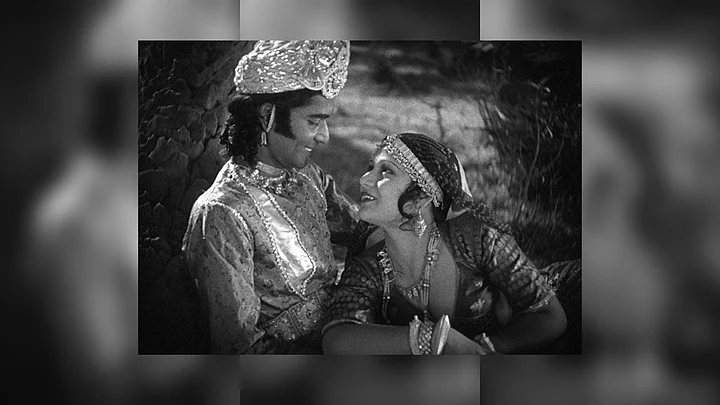Bengali filmmaker Pashupati Chatterjee mentions in his series of articles, titled Otiter Album (Album of the Past), that there were few pioneer directors from Bengal, much before Satyajit Ray, who elevated Indian cinema to be on a par with that of the world. However, the works of art they left behind supplied referential inspiration to the likes of Satyajit Ray and Ritwik Ghatak and contributed to the parallel cinema movement of 1950s.
The Early Years
Among these, Renaissance man Modhu Bose stands out. The filmmaker was born on 12 Feburary 1900 at 63 Dharmatala Street, Kolkata. His mother Kamala Dutt was an eminent educator who founded the Kamala Girls School at Ballygunge and his father Pramatha Nath Basu was a geologist and palaeontologist who first discovered iron deposits in Jamshedpur, much before Jamshedji Tata dreamt of transforming the city into an industrial hub.
Modhu Bose received his elementary education from Brahmacharya Balok Bidyaloy in Bolpur, Shantiniketan, after a stint in Darjeeling.
His talent and penchant for singing and the performing arts earned him favour from Rabindranath Tagore and he was chosen to play a part in Tagore’s Valmiki-Pratibha alongside the writer.
But before the play could be staged, his father was transferred and he had to leave Shantiniketan for Ranchi. The family moved around the country often, which brought Bose in contact with people from different classes and castes.
A Tryst With Hollywood
After pursuing a series of desk jobs, Bose got his break in cinema after an accidental meeting with production designer Himashu Rai, who was in Jaipur working for legendary German filmmaker Franz Austen at the time.
He scored himself an internship with Austen for a monthly stipend of Rs 200. He diligently handled everything from production to marketing for Light of Asia, which went on to be a moderate hit.
With Himashu Rai’s intervention, Bose’s hard work was recognised and he was invited to Emelka Studio in Munich, Germany (one of the leading studios at the time) where he learned how to use handheld Pathe cameras, film development and editing. Soon after, he had the chance to meet Alfred Hitchcock and became the first filmmaker from India to work closely with a director in a major Hollywood set-up.
Return to India
A sudden illness forced Modhu Bose to return to India. He began to concentrate solely on theatre and staged Prahlad at, which was written by his mother Kamla Dutt, at the Globe Theatre on 7 January 1927. Alibaba was staged at the Roxy in Kolkata the following year and was later turned into a major motion picture. Bose also served as assistant to Franz Austen on his second production in India, Throw of a Dice.
Modhu Bose’s Giribala, based on Tagore’s Manbhonjon, found praise from a major daily which stated that “despite production drawbacks for films in our country, one could not have imagined how lighting for film can be perfected.”
With1937’s Alibaba, Bose found both country-wide and international recognition. However, it was his wife Sadhana Basu who garnered the most praise for her performance in the musical. The director’s oeuvre includes notable titles such as Dahlia (1930),The Court Dancer: Raj Nartaki (1941), Michael Modhusudhan (1950) and Bireswar Vivekananda (1956) yet one could argue that his contribution to Indian cinema has been sidelined when compared to the likes of later filmmakers suchas Satyajit Ray, Ritwick Ghatak, Budhadeb Guha and Mrinal Sen.
Acclaimed actor-director Utpal Dutt credits his success in part to Bose. He agreed in an interview that it was during the time he played the role of Michael Modhusudhan Dutt in Michael Modhusudhan when he understood the difference between acting for film and on stage. “If anyone is to be praised for Michael Modhusudhan, it is Modhu Bose, not me,” he said.
It is to be noted that, Satyajit Ray is celebrated for his near perfect adaptation of Tagore’s literature. But Modhu Bose had already paved the pathway with his onscreen rendition of Gurudeb’s short stories. The question is why don’t we celebrate the pathfinders of Indian cinema, same way we do those of the Parallel Cinema movement? It’s like celebrating Martin Scorsese without acknowledging the influences from Orson Welles or Francois Truffaut.
On his 119th birth anniversary, let us offer Bose the recognition he deserves as one of the pioneers upon whose work the foundation of Indian cinema is built.
